When the Portuguese public television RTP film crew last came to Ukraine for the anniversary of the full-scale invasion in February, no one knew that it would be their last visit for a long time. Now, one RTP team has been working in Israel for two and a half months, and the other has been covering the election campaign and its results in the United States for the third month. The same situation is not only with Portuguese public television – it is a story about how the world’s media is gradually losing interest in the war in Ukraine.
“Ukrainian fixers are free…”
“The number of foreign journalists has more than halved,” Andrii Kovalenko, the executive director of the Academy of Ukrainian Press, who also helps foreign journalists work in Ukraine as a local producer of the information service, told the National Union of Journalists of Ukraine (NUJU). According to him, it is enough to go to professional groups on social networks to see an unusual picture – many messages that fixers are free and looking for work.
This is confirmed by the experience of Portuguese public television RTP.
“Compared to 2022, the budget for covering events in Ukraine has decreased significantly. Previously, RTP had four film crews in Ukraine, which covered the beginning of the conflict – in Kyiv, Lviv, and on the borders. Some crews, like ours, stayed in Ukraine for four months,” says Portuguese journalist Cândida Pinto. “This is understandable because, in 2022, we faced a military situation in Europe that had had no precedent since World War II. After that, Ukraine became a “cold” topic without much news. RTP journalists have not been in Ukraine for almost nine months now. The conflict between Israel and Hamas has become a priority for the budget and resources of leading media. And the complexity and danger of the conflict in the Middle East have clearly affected the attention to the situation in Ukraine.”
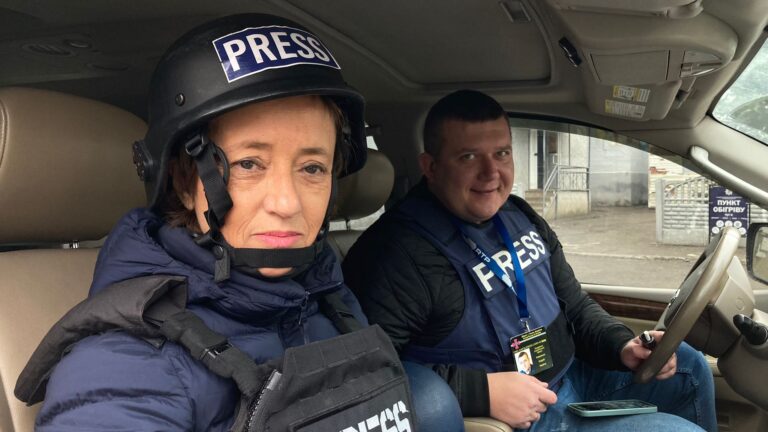
A journalist for the Romanian public television TVR, Alex Costache, also notes a striking change in priorities. If in 2022, he and his colleagues reported from Ukraine four times, and their trip in November of that year lasted 18 days, then this year there was only one trip of several days – in connection with the second anniversary of the full-scale war.
The media presence of foreign journalists in Ukraine has also changed significantly in terms of geography. Journalists from Germany, Italy, Great Britain, the United States, and France remain the most active. However, even they have changed the format of their work. If earlier the newsrooms ensured the constant presence of journalists in Ukraine, now the visits have become shorter and less frequent.
“Journalists from the Süddeutsche Zeitung, the largest German newspaper, come about once every month and a half, for a maximum of 10-12 days,” says Andrii Kovalenko. “Romanian journalists are interested in Ukraine, but they claim that the newsrooms do not have enough funds… But there is enough money to go to the US for the elections.”
The presence of media workers from other neighboring countries, in particular from Poland, has noticeably decreased. Latvian journalists still come systematically but also less frequently.
“Each trip to Ukraine is unique in terms of tasks, locations, and people we meet,” says Gints Amoliņš, foreign news editor and reporter for the Latvian public broadcaster LTV.
During the two and a half years of the war, he made about 20 trips to Ukraine. He witnessed the liberation of the Kyiv, Kharkiv, and Kherson Regions.
“Currently, the Latvian audience’s attention to events in Ukraine remains, but, of course, it is no longer as great as in the first days of the full-scale war,” says Gints Amoliņš.
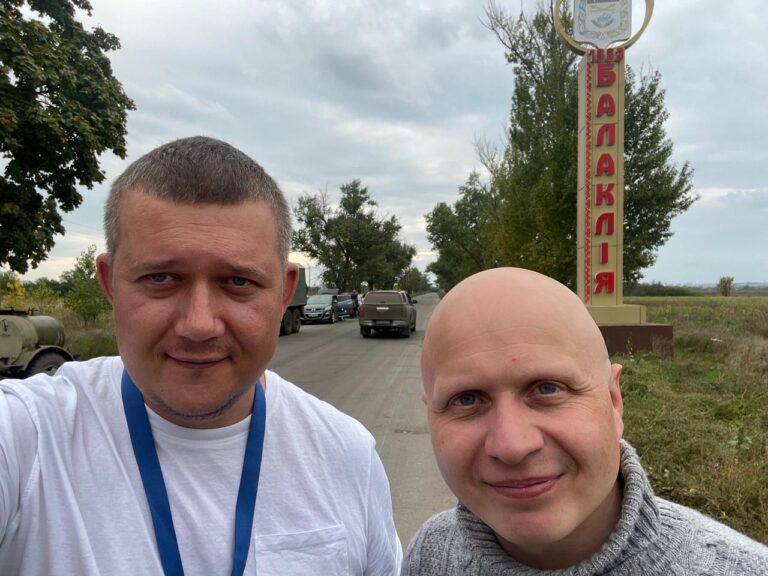
Less about the front, more about corruption
Not only the frequency of visits has changed, but also the topics of interest to foreign media. According to Cândida Pinto, who currently works in the United States, the most pressing Ukrainian topics today are not military operations but complex and hidden areas of society: the fight against corruption, issues of human rights and tolerance, the application of economic assistance from the EU, prices for essential goods, the movement of internally displaced persons, the consequences of war. Alex Costache considers the problems of mental trauma to be the most pressing topics about Ukraine.
Media from different countries of the world demonstrate a certain difference in the interests of their audiences.
“The media of Latvia and France still usually prepare materials from the front. But the Americans and the British are now writing more about the “secret negotiations” between Ukraine and russia and corruption scandals,” says Andrii Kovalenko. “German journalists have also begun to pay more attention to the topic of corruption, as well as the energy crisis and the issues of getting through the winter in Ukraine.”
One of the reasons for the decrease in the presence of foreign journalists is the economy of the media. According to Andrii Kovalenko, many newsrooms find it easier to buy videos and photos for reporting from Reuters or the Associated Press, or even from local journalists, than to send their own correspondents to Ukraine.
“Although Romanian TV channels continue to cover the realities of the war in Ukraine in news programs and talk shows,” says Alex Costache. “The truth is that they no longer allocate funds for reporting from the front or the places of events. It is easier and cheaper for them to take stories from press agencies or Telegram channels.
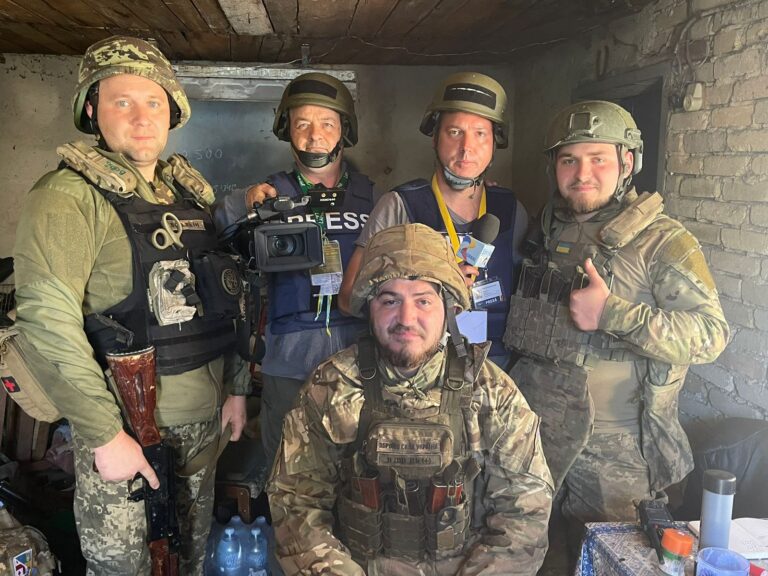
According to media experts, the increased attention to Ukraine in the world media may be influenced by significant changes on the front or by the new US policy after Donald Trump came to the White House.
“If Trump stops supporting Ukraine, this will become a significant problem for Europe, which will have to make much more efforts. This could spark a new wave of interest in the events in Ukraine,” says Cândida Pinto.
Alex Costache is also afraid of such extraordinary news about Ukraine.
“I hope that the attention to Ukraine will be drawn NOT by news about the termination of American military aid and NOT by the imposition of “peace” with the cession of territories and the “neutral status” of Ukraine…,” the journalist notes. “I hope that these will be stories made on the ground, with strong footage and authentic and emotional characters.”
“Don’t let Ukraine disappear from your newswires!”
The current decrease in world media attention to the war in Ukraine is not just a question of journalism. It is a signal that the world is gradually getting used to thinking about the war in Ukraine as something background, less important than the internal problems of Western countries or new conflicts. Such a transformation of media attention could have serious consequences for Ukraine because it is through journalists that the understanding of the war in the world community is formed. When the cameras turn away, the attention of world leaders and their voters may turn away with them. And this may become no less serious a challenge for Ukraine than the situation on the front.
In view of this, the National Union of Journalists of Ukraine is making significant efforts to maintain the interest of the world media as much as possible, to attract attention to Ukraine, and to support Ukrainian journalism. The NUJU does this using methods available to it, by demonstrating its video production in European countries, holding exhibitions and initiating publications in Western media, and assisting foreign journalists in their work in the territory of Ukraine.
“We are grateful to the National Union of Journalists of Ukraine and its Journalists’ Solidarity Centers for their support,” says Zhanna Chuchman, a journalist of Ukrainian origin from Argentina. “In particular, you can always come here and get the protective equipment you need.”
For journalists from distant countries, this is of great importance because transporting heavy helmets and bulletproof vests on airplanes is associated with many difficulties…
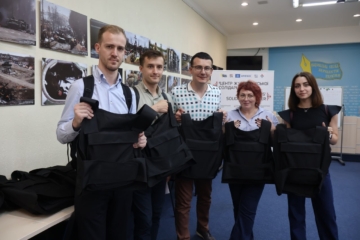
“When an air raid siren sounds on my smartphone, it is not just a warning for Ukraine. It is an alarm signal for all of Europe,” emphasized the President of the NUJU, Sergiy Tomilenko, speaking recently at the congress of the German Journalists’ Association. “If russian aggression is not stopped today, tomorrow these sirens may sound on your phones… My main message to colleagues abroad: do not let Ukraine disappear from your newspaper columns, from your TV broadcasts, from your news feeds!”
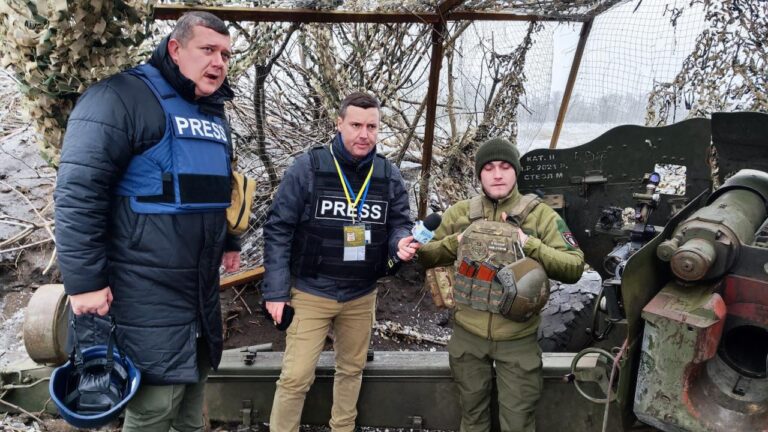
“Ukraine is the place where we did the best work!”
As for the foreign journalists themselves, they say that they would love to return to work in Ukraine.
“We created a lot of interesting and important reports here. Of course, the most exciting were the reports from the front line, live coverage from Bakhmut, Chasiv Yar, Kherson…,” recalls Alex Costache. “But the stories about children injured as a result of the war were no less emotional, such as the report about little Andrii, a child of only 2 years and 8 months, who was left without legs and whom I met in a hospital in Zhytomyr in March 2022, or children whose lives were turned upside down by the russian occupation, such as Nadiya from Kherson, who was only six years old in November 2022… We discovered extremely emotional stories and wonderful characters in harsh war conditions. I noticed that we didn’t know your country, even though we are neighbors, and that we have a lot in common.”
Alex Costache adds that he and his colleagues travel to cover extraordinary events and wars in different parts of the world, so it’s never easy, but… in Ukraine, it was the hardest because of the brutality of the war unleashed by the russians.
Gints Amoliņš agrees with this opinion.
“A memorable moment was Kyiv when we arrived there from Donbas in the first days of March 2022,” recalls the Latvian journalist. “A city of a million people, in which the streets were empty, as its residents fled, and those who remained stayed at home. At that moment, the invading army was near the capital; fighting was already underway in cities like Bucha and Irpin.
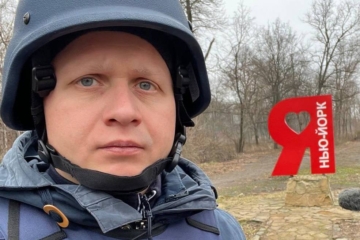
Gints Amoliņš recalls how he and his colleagues were reporting from the bridge leading to Irpin, which was already partially destroyed and unusable for traffic. Abandoned cars with broken windows and traces of shrapnel or bullets lined the sides. Civilians, some with bloodied faces and other injuries, trying to escape the fighting, crossed the bridge and the river on foot…
“A few weeks later, the following month in April, after the russian army had been pushed back from Kyiv and the horrors of Bucha had been revealed, I returned to the Ukrainian capital,” the journalist continues. “It was around Easter that year; the days were cool with spring sunshine, but red tulips were already blooming on the Maidan. The city was full of people; the streets were filled with traffic again – the people of Kyiv were back. A testament to the resilience of Ukrainians. A resilience that had been severely tested more than once in the months and years of the russian-Ukrainian war.”
The journalist says that he had previously reported from places affected by conflicts, such as the Middle East (West Bank of the Jordan River, Israel) and the South Sudanese refugee camps in northern Uganda, where you can also see the impact of conflicts on people’s lives. However, according to him, he had not covered a military conflict as intense as russia’s war in Ukraine since 2022…
Cândida Pinto also speaks about the uniqueness of the situation in Ukraine.
“We had to prepare reports from different countries, in particular from Portuguese-speaking countries in Africa,” the journalist recalls. “We didn’t have a language barrier there; it was easier to reach people there. But it was always difficult with the civil and military authorities there. In Ukraine, despite the language barrier and despite the fact that Portugal is located on the other side of Europe, it was easier to work as there was always empathy here; I felt a great response to the work I did. People always welcomed us well, even in difficult moments of attacks. They thanked us for being there – this had never happened to me before. I think Ukraine is the place where we did the best work!”
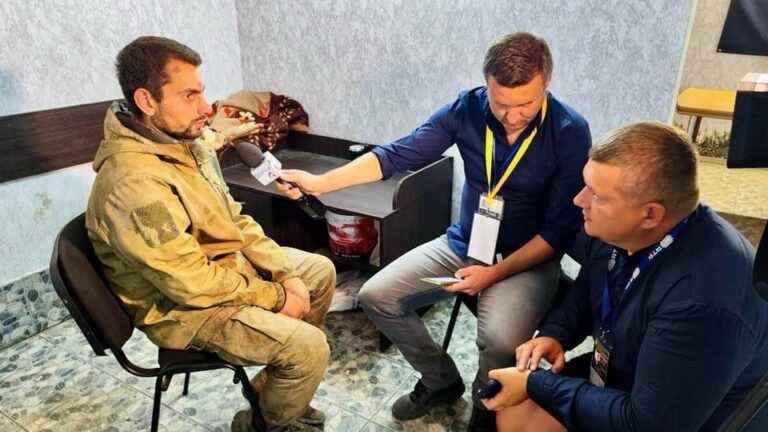
Maksym Stepanov, NUJU Information Service

 THE NATIONAL UNION OF
JOURNALISTS OF UKRAINE
THE NATIONAL UNION OF
JOURNALISTS OF UKRAINE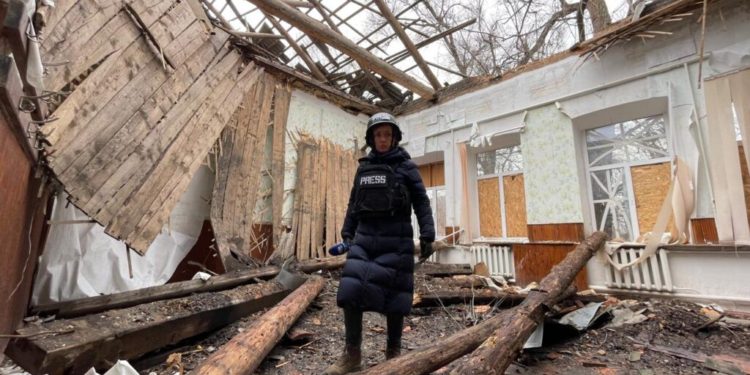
















Discussion about this post